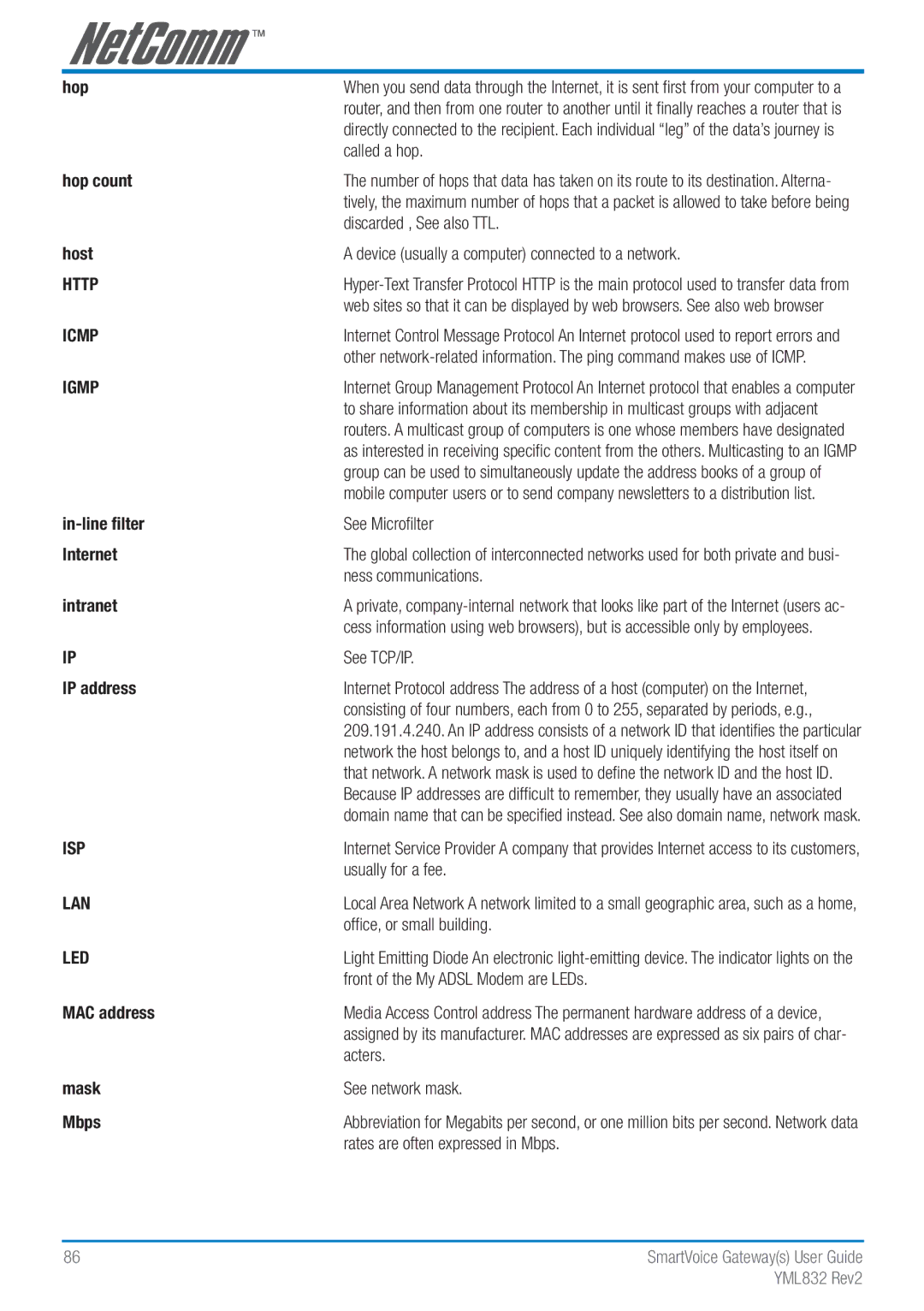
hop | When you send data through the Internet, it is sent first from your computer to a |
| router, and then from one router to another until it finally reaches a router that is |
| directly connected to the recipient. Each individual “leg” of the data’s journey is |
| called a hop. |
hop count | The number of hops that data has taken on its route to its destination. Alterna- |
| tively, the maximum number of hops that a packet is allowed to take before being |
| discarded , See also TTL. |
host | A device (usually a computer) connected to a network. |
HTTP | |
| web sites so that it can be displayed by web browsers. See also web browser |
ICMP | Internet Control Message Protocol An Internet protocol used to report errors and |
| other |
IGMP | Internet Group Management Protocol An Internet protocol that enables a computer |
| to share information about its membership in multicast groups with adjacent |
| routers. A multicast group of computers is one whose members have designated |
| as interested in receiving specific content from the others. Multicasting to an IGMP |
| group can be used to simultaneously update the address books of a group of |
| mobile computer users or to send company newsletters to a distribution list. |
See Microfilter | |
Internet | The global collection of interconnected networks used for both private and busi- |
| ness communications. |
intranet | A private, |
| cess information using web browsers), but is accessible only by employees. |
IP | See TCP/IP. |
IP address | Internet Protocol address The address of a host (computer) on the Internet, |
| consisting of four numbers, each from 0 to 255, separated by periods, e.g., |
| 209.191.4.240. An IP address consists of a network ID that identifies the particular |
| network the host belongs to, and a host ID uniquely identifying the host itself on |
| that network. A network mask is used to define the network ID and the host ID. |
| Because IP addresses are difficult to remember, they usually have an associated |
| domain name that can be specified instead. See also domain name, network mask. |
ISP | Internet Service Provider A company that provides Internet access to its customers, |
| usually for a fee. |
LAN | Local Area Network A network limited to a small geographic area, such as a home, |
| office, or small building. |
LED | Light Emitting Diode An electronic |
| front of the My ADSL Modem are LEDs. |
MAC address | Media Access Control address The permanent hardware address of a device, |
| assigned by its manufacturer. MAC addresses are expressed as six pairs of char- |
| acters. |
mask | See network mask. |
Mbps | Abbreviation for Megabits per second, or one million bits per second. Network data |
| rates are often expressed in Mbps. |
86 | SmartVoice Gateway(s) User Guide |
| YML832 Rev2 |
